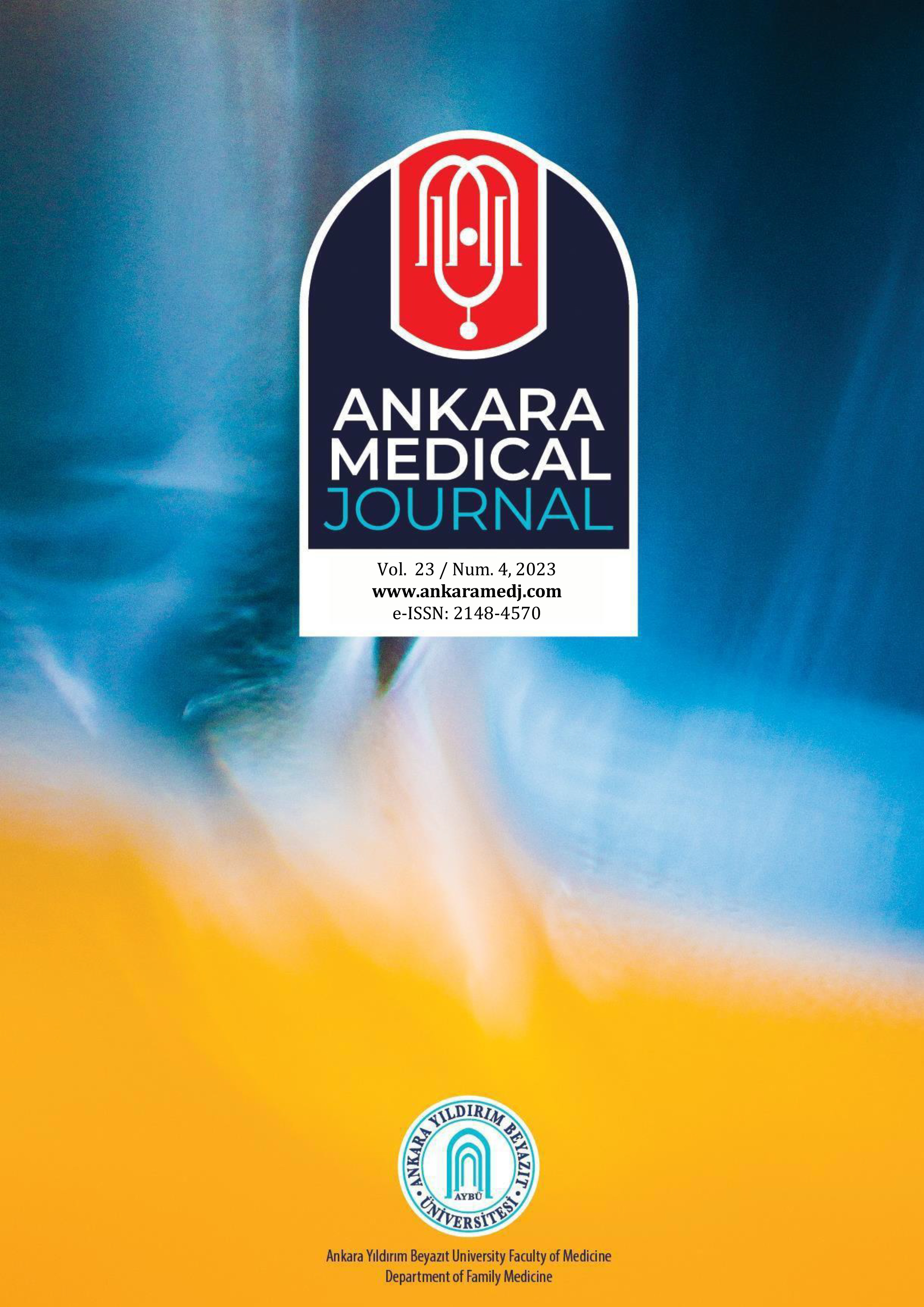Is the risk of malnutrition among caretakers related to caregiver anxiety?
Ayşe Naciye Erbakan1, Özge Telci Caklılı2, Özlem Gönen1, Banu Mesçi1, Aytekin Oğuz11Department of Internal Medicine, Istanbul Medeniyet University, Prof Dr Suleyman Yalcin City Hospital, Istanbul, TURKEY2Department of Endocrinology and Metabolism, Kocaeli City Hospital, Kocaeli, Turkey
INTRODUCTION: This study aims to investigate the association between caregiver anxiety and the risk of malnutrition among caretakers.
METHODS: A total of 200 caregivers whose patients were hospitalized in internal medicine clinics were included in a cross-sectional study. Patients were screened with the Nutritional Risk Screening (NRS) 2002 and divided into two groups: Patients with scores <3 (patients without nutritional support) and with scores ≥3 (patients with nutritional support). Caregiver distress was assessed using the State-Trait Anxiety Inventory (STAI).
RESULTS: Anxiety scores were high for all caregivers (mean state anxiety score 42.4 (min=20, max=70, median=42) and median trait anxiety score 41 (min=25, max=64, mean=41.4). However, the anxiety scores of caregivers of patients with malnutrition did not differ from those of caregivers of patients without malnutrition( for NRS score < 3 versus ≥3, state anxiety score 41.4±10.1 versus 42.7±10.1, p=0.428, and trait anxiety score 40±12 versus 41±13, p=0.494, respectively). Caring for patients for more than one year without support or with minimal support was significantly associated with higher anxiety scores compared to caring for more than one year with support or caring for less than six months without support (for state and trait anxiety, 50.4±9.1 vs 41.0± 9.7, p < 0.001 and 49±10 vs 40±12, p < 0.001, respectively).
DISCUSSION AND CONCLUSION: The absence of a support system and the duration of caregiving were found to be associated with an increased risk of caregiver anxiety, especially when both factors were present. However, no effect was observed on malnutrition status based on levels of anxiety among caregivers.
Makale Dili: İngilizce
(675 kere indirildi)





